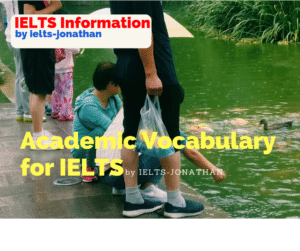IELTS Vocabulary to learn – week 1
For the last few weeks, I have been working from Taiyuan, Shanxi Province in China.
Why?
Well, I love travel and enjoy exploring new places and I also value teaching on university entrance courses.
Every week on this course, there has been a short test on some of the most common vocabulary from the texts and listening we have been using, and I’d like to share these with you.
These are very common academic words, and can occur in any exam text or listening.
High Frequency IELTS Words
As they are high frequency words, then they can occur in the IELTS test too.
You should also be able to use these words in speaking and writing, so pay attention to their meaning and check the pronunciation.
I’ve provided a mini quiz for you to consider at the end too.
|
Word |
Definition/synonym |
|
aspect (n) |
One part of a situation, idea, plan etc. that has many parts. Example: dealing with people is an important aspect of my work. |
|
decade (n) |
A period of 10 years. Example: The period 1920 – 1930 was a dynamic decade. |
|
potential (adj) |
Likely to develop into a particular type of person or thing in the future. Example: Potential security problems are a major disadvantage of e-commerce. |
|
phenomenon (n) (Plural: phenomena) |
Something that happens or exists in society, science or nature, especially something that is studied because it is difficult to understand. Example: The growing phenomenon of e-commerce. |
|
access (v) |
To find information, especially on a computer. Example: He accessed the internet to find out more about e-commerce. |
|
require (v) |
To need something. Example: Campbell’s broken leg will probably require surgery. |
|
maintain (v) |
To make something continue in the same way or at the same standard as before. Example: It is very hard to maintain these high standards of service. |
|
considerable (adj) |
Fairly large, especially large enough to have an effect or be important. Example: Our business is facing considerable difficulties. We may go bankrupt. |
|
brief (adj) |
Using very few words or including few details. Example: I will give a brief introduction to the topic. |
|
major (adj) |
Very large or important, especially when compared to other things or people of a similar kind. Example: There are two major political parties in the US. Having very serious/worrying results. Example: There are major problems with parking in London. |
|
challenge (n) |
Something that tests strength, skill or ability, especially in a way that is interesting. Example: He now faces the biggest challenge of his career. |
|
beneficial |
Having a good effect. Example: The development of online payment systems has been very beneficial for e-commerce. |
|
focus (v) |
To give special attention to one particular person or thing, or to make people do this. Synonym = concentrate. Example: In the first part of my talk, I will focus on the benefits of e-commerce. |
|
individual (n) |
A person, considered separately from the rest of the group or society they live in. Example: Each individual receives two genes, one from each parent. |
|
establish (v) |
To start a company, organisation, system etc. that is intended to exist or continue for a long time. Example: Our goal is to establish a new research centre. |
|
estimate (v) |
To try to judge the value, size, amount etc. of something made using the information that you have, which may not be complete. Example: The tree is estimated to be at least 700 years old. |
|
cite (v) |
To mention something as an example, especially one that supports, proves or explains an idea or situation. Example: Another issue that is commonly cited by people who shop online is concerns over the delivery of goods purchased online. |
|
pose (v) |
To exist in a way that may cause a problem, danger, difficulty etc. Example: Fraud still poses a significant risk to online consumers. |
IELTS Vocabulary Test
If you are confident you know these words, you can try and complete this mini test. You can do this in your head, or on paper.
Part 1: Dictation
Write down the words you hear and their part of speech (noun, adv, adjective, verb etc.)
1.
2.
3.
4.
5.
Part 2: comprehension
- Use the correct words in the box below in the following sentences. The words in the box are given in their base forms, you may need to add tense, a 3rd person singular s on verbs, or a plural marker on nouns.
challenge, cite, establish, focus, aspect
- Combining work and family life is a real for many people.
- A reason for online shopping which is often by customers is its convenience.
- Ebay was first in 1995.
- His research on people’s online shopping habits.
- An important negative of online shopping is related to security.
- Write example sentences using the following 3 words.
major, potential, access
Total: /13
and here are the answers
I’m Jonathan
I’ve taught IELTS and University English in more than a dozen universities and schools around the world.
I’m a parent, traveller and passionate about language teaching and helping students achieve their dreams.
Whilst living in Austria or working in Asia, I run IELTS courses to help students get to where they want to be.
If you are serious about IELTS, connect with me to see how I can help you.



